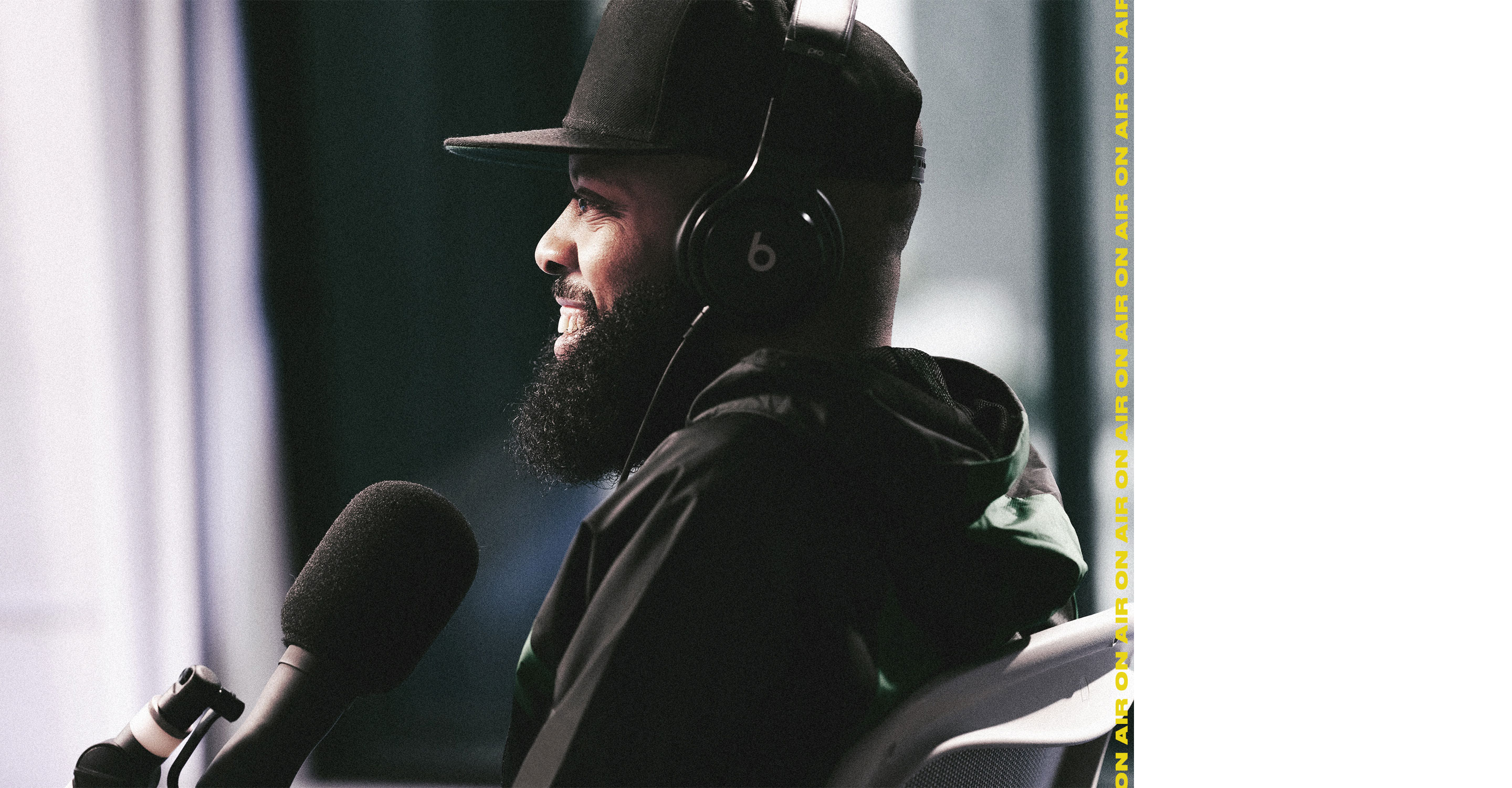On The Air
LowKey speaks on hip hop and his Apple Music show
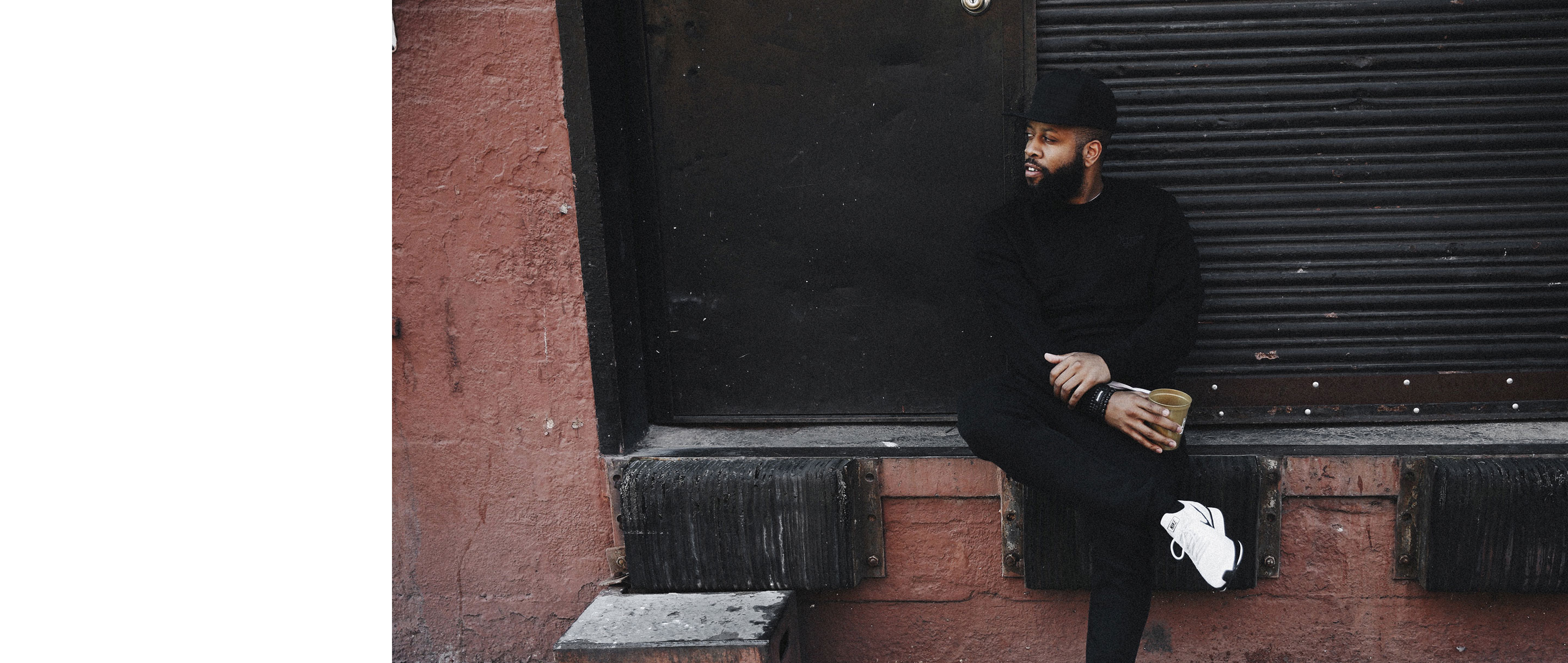
LowKey’s Apple Music show “Hip Hop R&B Throwback” is a nostalgic blast from the past
Nobody knows the relationship between music and memories quite like LowKey. As the host of Apple Music’s Hip Hop R&B Throwback, the New Jersey native spends his time giving listeners a healthy dose of “remember when?”
In this Q+A, LowKey sits down to discuss the idea behind his show, the state of hip hop, and his ascension from college radio host to Apple Music.
Tell us a little about Hip Hop R&B Throwback and what listeners can expect.
Hip Hop R&B Throwback is traveling down memory lane, reminiscing over some of the best throwbacks from the ‘80s all the way up to the 2000s. Triggering memories and recounting stories of when you first heard a song, what an artist did for you back then, or what do they still do for you now. I used to have a music website, and some of these records came out when I had that. So it’s easy for me to speak to the experience of these songs, albums and artists. I could do this in my sleep.
LowKey’s Apple Music show “Hip Hop R&B Throwback” is a nostalgic blast from the past
Nobody knows the relationship between music and memories quite like LowKey. As the host of Apple Music’s Hip Hop R&B Throwback, the New Jersey native spends his time giving listeners a healthy dose of “remember when?”
In this Q+A, LowKey sits down to discuss the idea behind his show, the state of hip hop, and his ascension from college radio host to Apple Music.
Tell us a little about Hip Hop R&B Throwback and what listeners can expect.
Hip Hop R&B Throwback is traveling down memory lane, reminiscing over some of the best throwbacks from the ‘80s all the way up to the 2000s. Triggering memories and recounting stories of when you first heard a song, what an artist did for you back then, or what do they still do for you now. I used to have a music website, and some of these records came out when I had that. So it’s easy for me to speak to the experience of these songs, albums and artists. I could do this in my sleep.
LowKey’s Apple Music show “Hip Hop R&B Throwback” is a nostalgic blast from the past
Nobody knows the relationship between music and memories quite like LowKey. As the host of Apple Music’s Hip Hop R&B Throwback, the New Jersey native spends his time giving listeners a healthy dose of “remember when?”
In this Q+A, LowKey sits down to discuss the idea behind his show, the state of hip hop, and his ascension from college radio host to Apple Music.
Tell us a little about Hip Hop R&B Throwback and what listeners can expect.
Hip Hop R&B Throwback is traveling down memory lane, reminiscing over some of the best throwbacks from the ‘80s all the way up to the 2000s. Triggering memories and recounting stories of when you first heard a song, what an artist did for you back then, or what do they still do for you now. I used to have a music website, and some of these records came out when I had that. So it’s easy for me to speak to the experience of these songs, albums and artists. I could do this in my sleep.
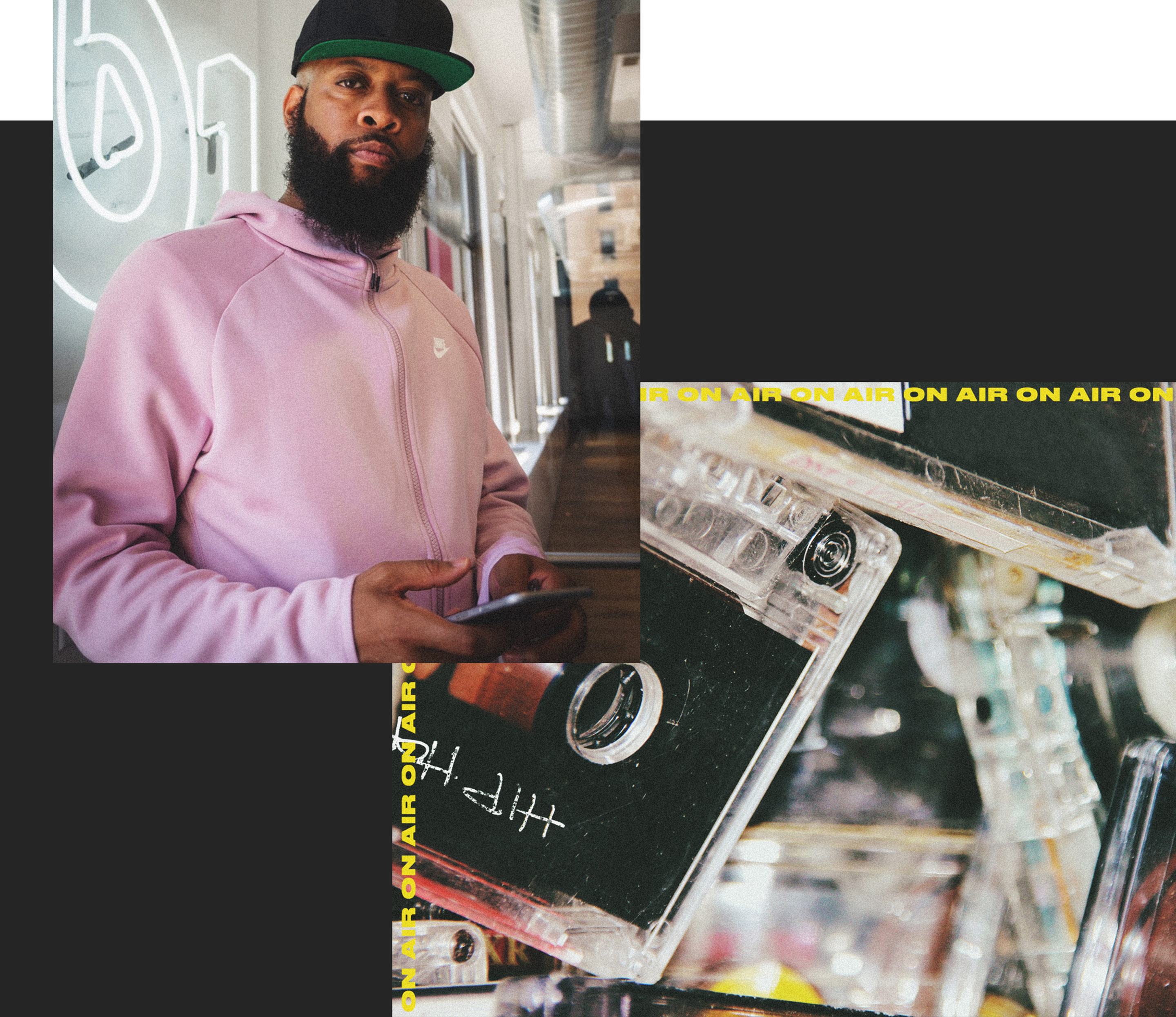
Hip Hop R&B Throwback is pretty much traveling down memory lane, reminiscing over some of the best throwbacks from the ‘80s all the way up to the 2000s.
Hip Hop R&B Throwback is pretty much traveling down memory lane, reminiscing over some of the best throwbacks from the ‘80s all the way up to the 2000s.
Hip Hop R&B Throwback is pretty much traveling down memory lane, reminiscing over some of the best throwbacks from the ‘80s all the way up to the 2000s.
Hip Hop R&B Throwback is pretty much traveling down memory lane, reminiscing over some of the best throwbacks from the ‘80s all the way up to the 2000s.
Hip Hop R&B Throwback is pretty much traveling down memory lane, reminiscing over some of the best throwbacks from the ‘80s all the way up to the 2000s.
Hip Hop R&B Throwback is pretty much traveling down memory lane, reminiscing over some of the best throwbacks from the ‘80s all the way up to the 2000s.
What do you think the past 30 years of hip hop and R&B can teach us about Black culture as a whole?
That it’s important. It’s really, really important. It can teach us stories of communities that aren’t heard. It could teach us about the pain and the suffering, the joy and the success. There’s so many layers to what music provides for us, especially over the last 30 years. It’s a history lesson about a city. It’s a history lesson about an artist. Music is our life, you know what I mean?
What do you think the past 30 years of hip hop and R&B can teach us about Black culture as a whole?
That it’s important. It’s really, really important. It can teach us stories of communities that aren’t heard. It could teach us about the pain and the suffering, the joy and the success. There’s so many layers to what music provides for us, especially over the last 30 years. It’s a history lesson about a city. It’s a history lesson about an artist. Music is our life, you know what I mean?
What do you think the past 30 years of hip hop and R&B can teach us about Black culture as a whole?
That it’s important. It’s really, really important. It can teach us stories of communities that aren’t heard. It could teach us about the pain and the suffering, the joy and the success. There’s so many layers to what music provides for us, especially over the last 30 years. It’s a history lesson about a city. It’s a history lesson about an artist. Music is our life, you know what I mean?
Of all the eras you feature on your show, what’s your favorite era?
My era is the ‘90s, like the late-‘80s to the ‘90s. My dad worked for a record label, so a lot of these records were playing in my household. New Jack Swing and the golden era of hip hop. For me that was high school and going into college, so those songs bring back so many different memories. From my first car, to my first date, to playing a song and getting fresh for the first day of school. It defined my musical ear, my musical palette and who I am today. Music isn’t the same today as it was then. But I’m 37, so things change. Things evolve.
Of all the eras you feature on your show, what’s your favorite era?
My era is the ‘90s, like the late-‘80s to the ‘90s. My dad worked for a record label, so a lot of these records were playing in my household. New Jack Swing and the golden era of hip hop. For me that was high school and going into college, so those songs bring back so many different memories. From my first car, to my first date, to playing a song and getting fresh for the first day of school. It defined my musical ear, my musical palette and who I am today. Music isn’t the same today as it was then. But I’m 37, so things change. Things evolve.
Of all the eras you feature on your show, what’s your favorite era?
My era is the ‘90s, like the late-‘80s to the ‘90s. My dad worked for a record label, so a lot of these records were playing in my household. New Jack Swing and the golden era of hip hop. For me that was high school and going into college, so those songs bring back so many different memories. From my first car, to my first date, to playing a song and getting fresh for the first day of school. It defined my musical ear, my musical palette and who I am today. Music isn’t the same today as it was then. But I’m 37, so things change. Things evolve.
How has the R&B and hip hop landscape changed from then to now?
I believe what’s changed is how we consume music, the volume of consumption, and the access to the artists. Back then, we didn’t have social media. We couldn’t find out what they were doing, who they were collaborating with, who they were beefing with. Everything is really in your face and immediate, and that’s a gift and a curse. We thrive and crave for that information. And sometimes that can blur the lines between the artist and the consumer. Now we’re looking at them as people we know, and that can blur the lines of judging music.
How has the R&B and hip hop landscape changed from then to now?
I believe what’s changed is how we consume music, the volume of consumption, and the access to the artists. Back then, we didn’t have social media. We couldn’t find out what they were doing, who they were collaborating with, who they were beefing with. Everything is really in your face and immediate, and that’s a gift and a curse. We thrive and crave for that information. And sometimes that can blur the lines between the artist and the consumer. Now we’re looking at them as people we know, and that can blur the lines of judging music.
How has the R&B and hip hop landscape changed from then to now?
I believe what’s changed is how we consume music, the volume of consumption, and the access to the artists. Back then, we didn’t have social media. We couldn’t find out what they were doing, who they were collaborating with, who they were beefing with. Everything is really in your face and immediate, and that’s a gift and a curse. We thrive and crave for that information. And sometimes that can blur the lines between the artist and the consumer. Now we’re looking at them as people we know, and that can blur the lines of judging music.

I think they call that a parasocial relationship. It’s like this one-sided relationship that seems mutual because the fan knows so much about the artist and it seems like the artist is speaking directly to them. But really, they’re just talking into the ether.
Right. You develop this relationship with these artists, and then it’s almost an entitlement thing: “You’re supposed to tell me about what you’re doing. You’re supposed to tell me when this new album is coming out. You’re supposed to tell me what you think about this other artist.” We feel that we deserve to have the information and access. And that can mess up the relationship, you know?
There’s so much pressure on everybody to feed into the news cycle. If you don’t hear about someone for a week, it’s like you haven’t heard about them in a year.
It puts too much pressure on the artists, it forces them to create in an uncomfortable timeframe. Back in the day we sat with an album for six to nine months. Now we sit with albums for six weeks. And that’s totally unjustifiable and unfair.
I think they call that a parasocial relationship. It’s like this one-sided relationship that seems mutual because the fan knows so much about the artist and it seems like the artist is speaking directly to them. But really, they’re just talking into the ether.
Right. You develop this relationship with these artists, and then it’s almost an entitlement thing: “You’re supposed to tell me about what you’re doing. You’re supposed to tell me when this new album is coming out. You’re supposed to tell me what you think about this other artist.” We feel that we deserve to have the information and access. And that can mess up the relationship, you know?
There’s so much pressure on everybody to feed into the news cycle. If you don’t hear about someone for a week, it’s like you haven’t heard about them in a year.
It puts too much pressure on the artists, it forces them to create in an uncomfortable timeframe. Back in the day we sat with an album for six to nine months. Now we sit with albums for six weeks. And that’s totally unjustifiable and unfair.
I think they call that a parasocial relationship. It’s like this one-sided relationship that seems mutual because the fan knows so much about the artist and it seems like the artist is speaking directly to them. But really, they’re just talking into the ether.
Right. You develop this relationship with these artists, and then it’s almost an entitlement thing: “You’re supposed to tell me about what you’re doing. You’re supposed to tell me when this new album is coming out. You’re supposed to tell me what you think about this other artist.” We feel that we deserve to have the information and access. And that can mess up the relationship, you know?
There’s so much pressure on everybody to feed into the news cycle. If you don’t hear about someone for a week, it’s like you haven’t heard about them in a year.
It puts too much pressure on the artists, it forces them to create in an uncomfortable timeframe. Back in the day we sat with an album for six to nine months. Now we sit with albums for six weeks. And that’s totally unjustifiable and unfair.
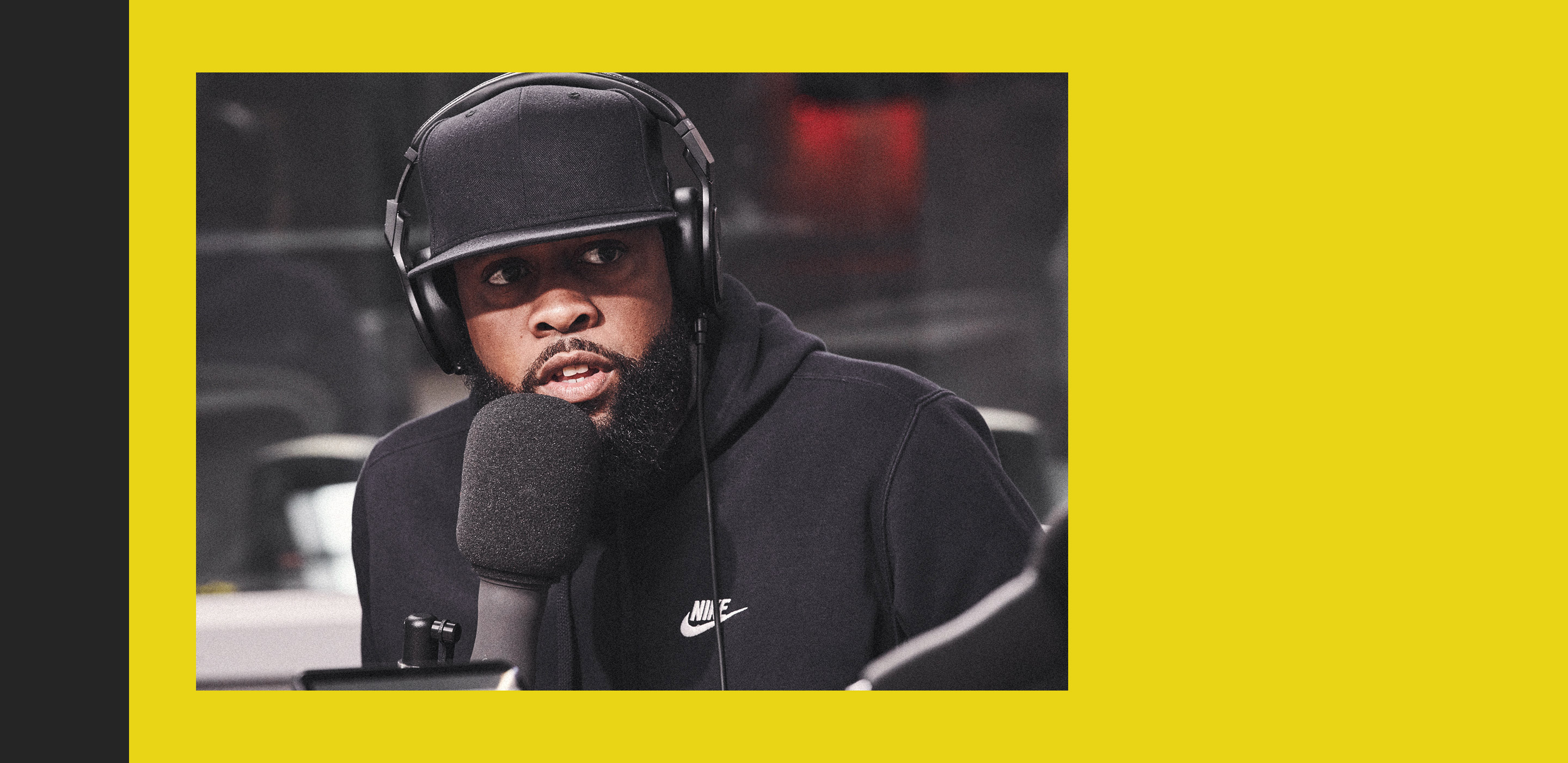
Back in the day we sat with an album for six to nine months. Now we sit with albums for six weeks. And that’s totally unjustifiable and unfair.
Back in the day we sat with an album for six to nine months. Now we sit with albums for six weeks. And that’s totally unjustifiable and unfair.
Back in the day we sat with an album for six to nine months. Now we sit with albums for six weeks. And that’s totally unjustifiable and unfair.
Let’s talk about your rise to where you are today. You started out at Howard working at the radio and studying broadcast journalism. How did your time at an HBCU prepare you for the career that you have now?
When I got to Howard, I was a kid from Jersey that didn’t really travel as much as I do now. I was meeting kids from ATL, Florida, and the West Coast. I was being put on to different slang, clothing, food and cultures. HBCUs are really breeding grounds for all those things. I wouldn’t know what “ridin’ dirty” meant. I wouldn’t know what chopped n’ screwed was. I wouldn’t know about the music in the Bay. But now you can hear the music on the show, and it’s like these are moments that I can remember back at the Howard dorm parties. These were the songs we played. I started to respect the different sounds of hip hop.
Let’s talk about your rise to where you are today. You started out at Howard working at the radio and studying broadcast journalism. How did your time at an HBCU prepare you for the career that you have now?
When I got to Howard, I was a kid from Jersey that didn’t really travel as much as I do now. I was meeting kids from ATL, Florida, and the West Coast. I was being put on to different slang, clothing, food and cultures. HBCUs are really breeding grounds for all those things. I wouldn’t know what “ridin’ dirty” meant. I wouldn’t know what chopped n’ screwed was. I wouldn’t know about the music in the Bay. But now you can hear the music on the show, and it’s like these are moments that I can remember back at the Howard dorm parties. These were the songs we played. I started to respect the different sounds of hip hop.
Let’s talk about your rise to where you are today. You started out at Howard working at the radio and studying broadcast journalism. How did your time at an HBCU prepare you for the career that you have now?
When I got to Howard, I was a kid from Jersey that didn’t really travel as much as I do now. I was meeting kids from ATL, Florida, and the West Coast. I was being put on to different slang, clothing, food and cultures. HBCUs are really breeding grounds for all those things. I wouldn’t know what “ridin’ dirty” meant. I wouldn’t know what chopped n’ screwed was. I wouldn’t know about the music in the Bay. But now you can hear the music on the show, and it’s like these are moments that I can remember back at the Howard dorm parties. These were the songs we played. I started to respect the different sounds of hip hop.
After you finished at Howard, you went into music journalism, right?
Yeah. I graduated from Howard in 2006 and I created my music website right after I graduated. Then like two years after a TV station hired me as an online journalist. I was reporting on parties, concerts and events for about three years. In 2011, I got laid off, but I just started doing the city thing: hosting events, curating events, and it just built from there.
After you finished at Howard, you went into music journalism, right?
Yeah. I graduated from Howard in 2006 and I created my music website right after I graduated. Then like two years after a TV station hired me as an online journalist. I was reporting on parties, concerts and events for about three years. In 2011, I got laid off, but I just started doing the city thing: hosting events, curating events, and it just built from there.
After you finished at Howard, you went into music journalism, right?
Yeah. I graduated from Howard in 2006 and I created my music website right after I graduated. Then like two years after a TV station hired me as an online journalist. I was reporting on parties, concerts and events for about three years. In 2011, I got laid off, but I just started doing the city thing: hosting events, curating events, and it just built from there.
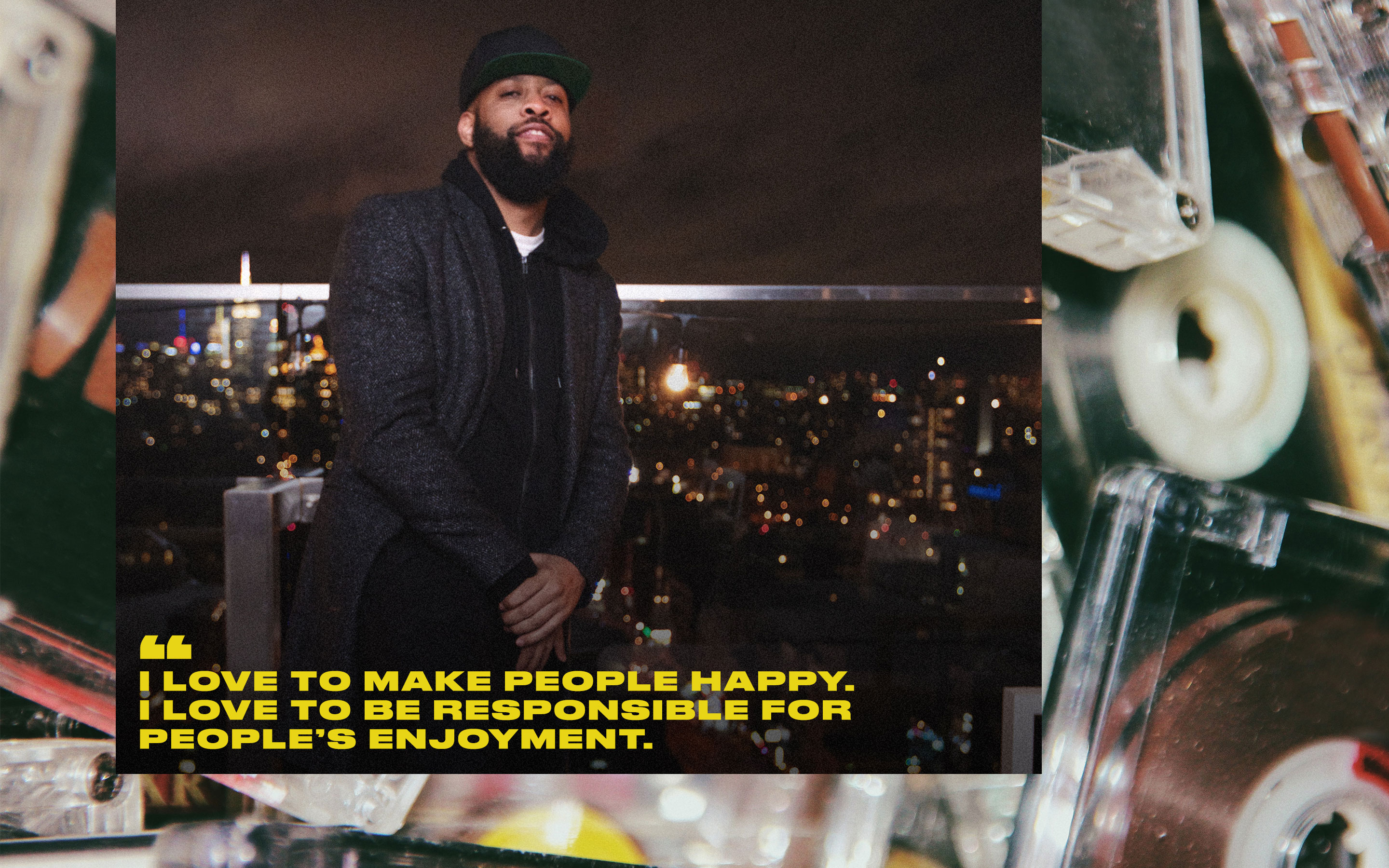
What do you think it takes to create the perfect event?
That’s a good question. I don’t know. It’s different for everybody, you know? There are so many people in New York. We have all different tastes in what we want to do, where we want to go, and who we want to be around. There are parties that cater to hip hop heads. There are parties that cater to women. There are parties that cater to specific times in hip hop and R&B. So you’ve got find your niche; you’ve got to find what’s missing from the scene.
What do you think it takes to create the perfect event?
That’s a good question. I don’t know. It’s different for everybody, you know? There are so many people in New York. We have all different tastes in what we want to do, where we want to go, and who we want to be around. There are parties that cater to hip hop heads. There are parties that cater to women. There are parties that cater to specific times in hip hop and R&B. So you’ve got find your niche; you’ve got to find what’s missing from the scene.
What do you think it takes to create the perfect event?
That’s a good question. I don’t know. It’s different for everybody, you know? There are so many people in New York. We have all different tastes in what we want to do, where we want to go, and who we want to be around. There are parties that cater to hip hop heads. There are parties that cater to women. There are parties that cater to specific times in hip hop and R&B. So you’ve got find your niche; you’ve got to find what’s missing from the scene.
It’s really interesting. As an event host, you’re orchestrating the night and setting up a good vibe for everybody. And as a DJ, it’s the same thing: orchestrating the sound track, setting up the vibe for everybody. Why do you think you’re drawn to these roles?
I love to make people happy. I love to be responsible for people’s enjoyment. I like when people are like, “You know, we went to Low’s party and they were doing this, that, and the third.” That makes me happy. If I can give people a stress reliever, a break for two or three hours, I’m good. That’s why I love being on stage, and that’s why I love creating these playlists. It’s also why this Throwback show is going to be fun— I’m giving people memories.
It’s really interesting. As an event host, you’re orchestrating the night and setting up a good vibe for everybody. And as a DJ, it’s the same thing: orchestrating the sound track, setting up the vibe for everybody. Why do you think you’re drawn to these roles?
I love to make people happy. I love to be responsible for people’s enjoyment. I like when people are like, “You know, we went to Low’s party and they were doing this, that, and the third.” That makes me happy. If I can give people a stress reliever, a break for two or three hours, I’m good. That’s why I love being on stage, and that’s why I love creating these playlists. It’s also why this Throwback show is going to be fun— I’m giving people memories.
It’s really interesting. As an event host, you’re orchestrating the night and setting up a good vibe for everybody. And as a DJ, it’s the same thing: orchestrating the sound track, setting up the vibe for everybody. Why do you think you’re drawn to these roles?
I love to make people happy. I love to be responsible for people’s enjoyment. I like when people are like, “You know, we went to Low’s party and they were doing this, that, and the third.” That makes me happy. If I can give people a stress reliever, a break for two or three hours, I’m good. That’s why I love being on stage, and that’s why I love creating these playlists. It’s also why this Throwback show is going to be fun— I’m giving people memories.
You’ve already had such an interesting place in the culture and such a big footprint, particularly in New York. How do you want to be remembered?
I want to be remembered as someone who reminds people that it’s never too late. I’m a little bit older. People always have this mindset like, “Oh, I’m too old to do this,” or, “I’m too old to do that.” If you have desire, the passion, the love, the knowledge and hunger to do it, it’s never too late. Just keep your head down, study and respect your craft, respect the people that came before you, be grateful for opportunities, and help people that are next to you or behind you.
You’ve already had such an interesting place in the culture and such a big footprint, particularly in New York. How do you want to be remembered?
I want to be remembered as someone who reminds people that it’s never too late. I’m a little bit older. People always have this mindset like, “Oh, I’m too old to do this,” or, “I’m too old to do that.” If you have desire, the passion, the love, the knowledge and hunger to do it, it’s never too late. Just keep your head down, study and respect your craft, respect the people that came before you, be grateful for opportunities, and help people that are next to you or behind you.
You’ve already had such an interesting place in the culture and such a big footprint, particularly in New York. How do you want to be remembered?
I want to be remembered as someone who reminds people that it’s never too late. I’m a little bit older. People always have this mindset like, “Oh, I’m too old to do this,” or, “I’m too old to do that.” If you have desire, the passion, the love, the knowledge and hunger to do it, it’s never too late. Just keep your head down, study and respect your craft, respect the people that came before you, be grateful for opportunities, and help people that are next to you or behind you.
